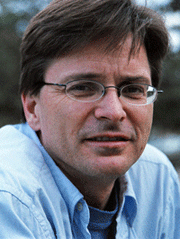Heroes tend to live under glass, removed from intimacy with the people and world around them; Osheroff remains in close contact with his world.
Another problem with heroes: It can be hard to argue with them, and I can't imagine giving up the pleasure of arguing with Osheroff.
Osheroff certainly could play the hero if he liked. At age 90, he's participated in some of the most important political moments and movements of the 20th century -- from fighting with the International Brigades in the Spanish Civil War in the 1930s, to the U.S. civil rights struggles in the segregated South in the 1960s, to the contemporary antiwar movement. And he's right out of central casting for the role of the aging-radical-who-never-gives-up: The white-haired rascal who moves seamlessly between passionate political analysis and anecdotes of past struggles, all in his gravely Brooklyn-accented speech peppered with enough profanity to set off a fire alarm.
Osheroff loves to tell stories about the past, and it doesn't take much to start them rolling. But he's not mired in the past; conversations loop back to his personal history not to revel in the glory days, but to extract from those experiences lessons for the struggles ahead.
That past includes a long stint in the Communist Party, during which time he organized tenants, the unemployed, and workers. In 1937 he joined the Abraham Lincoln Brigade, the U.S. wing of the internationals fighting in Spain. After Pearl Harbor, he re-entered the fight against fascism with the U.S. Army in Europe. He spent part of the 1950s moving around the country semi-underground, avoiding the FBI's campaign to jail Communist Party members. After leaving the party in 1956 in the wake of revelations about the horrors of Stalinism and the Soviet crackdown in Hungary, Osheroff moved to California and got involved in community organizing against real estate developers on the Venice canals. In 1964 he went to Mississippi to help build a community center. He worked behind the scenes in the Vietnam antiwar movement in California. In 1985 he went to Nicaragua with the Lincoln Construction Brigade, which he organized to build housing with a campesino collective. Along the way he made two award-winning documentary films about Spain and the legacy of the civil war, "Dreams and Nightmares" in 1974 and "Art in the Struggle for Freedom" in 2000. He also has taught history classes on the subject at UCLA and the University of Washington.
Living in Seattle since 1989, he and his wife, Gunnel Clark, are both active in that city's antiwar movement. Osheroff continued to give talks at universities and high schools until several spinal surgeries made it increasingly difficult for him to travel. That physical limitation led to his most recent project, the Peace Mobile. He raised the money to equip a van with a sound system and weather-proof posters to create a traveling outreach center. He hopes eventually to add projection equipment to show films anywhere, as well as computers and copiers to produce fliers on site at events. But a big part of the draw of the project is that he will be able -- sitting in the passenger seat with microphone in hand -- to keep talking to people about justice and peace.
Osheroff intends to keep at it as long as his body holds out.
"My ship is slowly sinking, but the cannons keep firing," Osheroff says. "Or, here's another way to say it: I have one foot in the grave but the other keeps dancing."
I met Osheroff in 2000 when he came to the University of Texas at Austin to lecture. A second visit to Austin in 2001 led to correspondence and a trip to Seattle in the summer of 2005 to record some of Osheroff's insights. Our conversation roamed over a wide range of subjects political and philosophical, from the planetary to the personal, and I left with a deeper appreciation for Osheroff's analysis and honesty. In a world driven by fear, Osheroff is one of those rare people who is willing to tell you to your face what he thinks of you, and then can turn that scrutiny on himself. In the conversation that follows, Osheroff demonstrates what it means to love the world deeply enough to be willing to tell the truth.
The full text of the interview is online at:
http://thirdcoastactivist.org/osheroff.html





